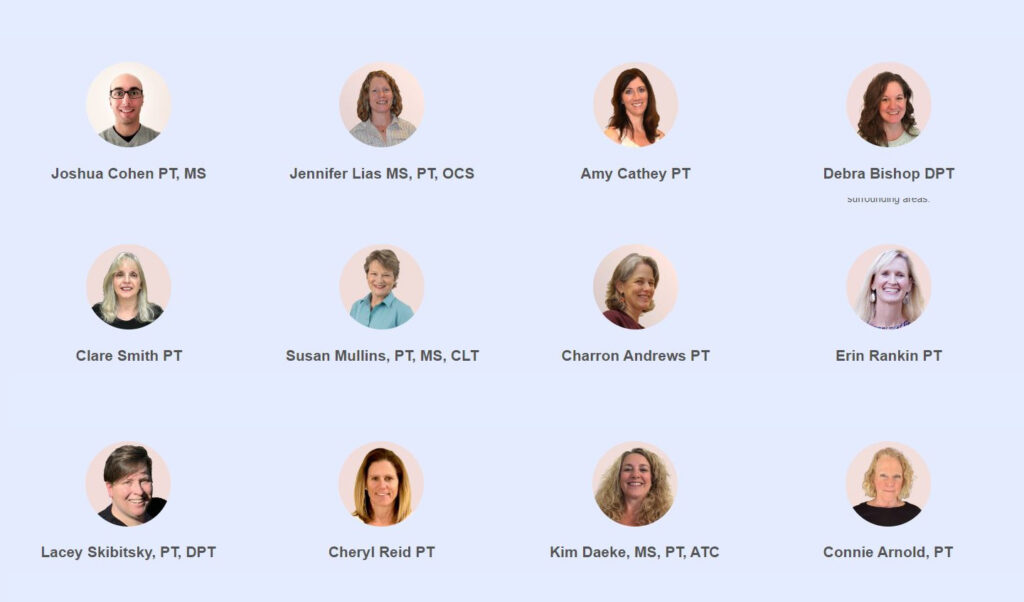We Accept:
Mobile Rehab provides in-home, outpatient Physical Therapy for seniors.
Convenient
Personalized
Covered by insurance
Locally owned and operated in North Carolina since 2004
What are postural issues?
Postural issues refer to abnormal alignment or positioning of the body, often resulting from poor posture habits, musculoskeletal imbalances, or structural abnormalities. Poor posture can put undue stress on the muscles, joints, and other structures of the body, leading to pain, discomfort, and dysfunction.
Some common postural issues include:
Forward head posture: This occurs when the head is positioned forward of the shoulders, putting undue stress on the neck and upper back.
Rounded shoulders: This occurs when the shoulders are rolled forward, resulting in a hunched posture that can lead to neck, shoulder, and upper back pain.
Kyphosis: This is an excessive rounding of the upper back, often resulting from poor posture habits or structural abnormalities.
Lordosis: This is an excessive inward curvature of the lower back, often resulting from poor posture habits or musculoskeletal imbalances.
Scoliosis: This is a lateral curvature of the spine, often resulting from structural abnormalities.
Postural issues can have a significant impact on a person's overall health and well-being, leading to pain, discomfort, and limited mobility. Physical therapy can help identify and address postural issues by developing a customized treatment plan that includes exercises to improve strength, flexibility, and posture awareness.
What are the symptoms of poor posture?
Poor posture can cause a range of symptoms, including:
Pain: Poor posture can cause pain in various areas of the body, including the neck, shoulders, upper and lower back, hips, and knees.
Stiffness: Poor posture can cause stiffness in the joints and muscles, making it difficult to move freely.
Fatigue: Poor posture can cause fatigue in the muscles, leading to decreased energy and overall function.
Headaches: Poor posture can contribute to tension headaches, especially if the neck and upper back muscles are affected.
Breathing difficulties: Poor posture can limit lung capacity, making it more difficult to breathe.
Digestive issues: Poor posture can affect digestion by putting pressure on the stomach and intestines.
Poor balance: Poor posture can affect balance by altering the center of gravity and making it more difficult to maintain stability.
How can physical therapy help with postural issues?
Physical therapy can be very effective in helping to correct postural issues. A physical therapist will conduct a comprehensive evaluation to identify the specific causes of the postural issue and develop an individualized treatment plan.
Here are some ways physical therapy can help with postural issues:
Strengthening exercises: Physical therapy exercises can target weak muscles and improve strength in the muscles that support good posture.
Stretching and flexibility exercises: Tight muscles can contribute to postural issues, so physical therapy may include stretching exercises to improve flexibility and reduce muscle tension.
Posture training: A physical therapist can provide instruction on how to maintain proper posture and make adjustments to positioning throughout the day to reduce strain on the muscles and joints.
Manual therapy: Hands-on techniques, such as massage or joint mobilization, can be used to relieve pain and improve range of motion.
Education and lifestyle modification: Physical therapists can provide education on ergonomics, body mechanics, and lifestyle modifications that can improve posture and reduce postural issues.
By addressing the underlying causes of postural issues through physical therapy, patients can improve their posture, reduce pain, and prevent future injuries.
Frequently asked questions
Use your insurance or pay privately
Medicare
$0 per visit
Many Medicare plans with a supplement policy will cover all of our fees.
Commercial Insurance
Same as a clinic
Pay the same copay as if you went to a clinic for therapy. We accept many major insurances and will verify your benefits before starting.
Private Pay
$120
Easy payment options available.
HOW TO GET STARTED
Contact Us by Phone, Email, or Fax
We’ll help you check your insurance benefits. You do not need to be homebound and you should not be currently receiving any other physical therapy or skilled nursing services in the home.
Schedule an Evaluation
We will match you with a therapist and have them contact you to plan a date, time and location that works best for you.
It’s That Easy!
We make it simple to get the care you need… and exceed your expectations while doing so.
SERVICES
Fall Prevention
We provide research-based, individualized fall prevention interventions that have been shown to greatly reduce your risk of falling and injuries, including the OTAGO fall prevention program.
Click here to
learn more about OTAGO
General Rehab
Avoid driving to a clinic and get the individualized care you deserve. We work with many conditions ranging from post-stroke, Parkinson’s, vertigo to rotator cuff dysfunction and much more. Contact us for details.
After Home Health
We can improve care continuity by providing in home therapy even after you have been discharged by a Home Health agency. Avoid the hassle of driving and continue to make progress towards your goals.
Strength and Conditioning
We can help you improve your strength, mobility, range of motion, or any other functional limitations that impair your daily activity.
Pain Relief
We develop individualized care plans to help manage your aches and pains through exercise and hands-on techniques.


